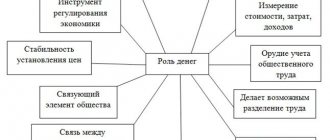- Essays
- On a free topic
/
War is the most terrible and brutal event that can happen to humanity and our world. There is not a single person in our country who does not know about this terrible phenomenon. After all, from childhood we are told about the war, so that we honor the memory of the dead, because in our time it’s not all about what pain, how valuable we got this victory.
The Great Patriotic War left a huge mark on our history and claimed the lives of twenty-eight million people. She spared neither the elderly nor the children. Everyone stood up to defend our vast Motherland.
The very word War brings horror and fear to other people, because they know how painful it is to feel in your heart from the loss of people close to you: father, brother, mother. This war was the most difficult test for our people. I can’t imagine what kind of fortitude it takes to protect not only your family, but also the families of other people, at the cost of your own life. To be honest, it seems to me that our generation seems incapable of such feats.
Everyone went to fight: men of all ages, teenagers who falsified their year of birth in order to be recruited for military service. Women who were left alone in dilapidated cities and tried to rebuild them with their children, worked in factories and factories, deserve special respect. Many teenagers went to the rear without telling anyone. Many did not return home, where their faithful wives and children were waiting for them every day; some were seriously wounded, others were taken prisoner. There was not a single family that was not shaken by this terrible time. People died from weakness right at their workplaces because they worked nonstop, without food and without rest. Everyone contributed to this victory in their own way. Many monuments, historical buildings, and cultural heritage were destroyed. Many poems and songs are dedicated to this terrible time.
Summarizing the above, we can conclude that the war did not leave a single family unaffected. From that time, terrible black and white footage remained. Cruelty and bestiality knew no bounds. But thanks to faith and hope, our brave and courageous soldiers of the Red Army, we were able to win this unequal and bloody battle. We must never forget our heroes. This cannot be allowed to happen again. Eternal memory to the people who gave their lives so that we can now live under a blue and bright sky. We must never forget these times.
Essay 2
The Great Patriotic War will never get out of your head and will never cease to worry many people who lived through it. Nobody wanted this won, but nevertheless, a lot of people died in it and it left its mark on everyone.
This terrible war began in June twenty-second of forty-one. On this day, the Nazis attacked our country. German troops attacked our country without any notice, early in the morning at four o'clock. When everyone was still sleeping. Husbands, sons, fathers were taken to war, and women waited for them with the hope that they would not return alive. But many never returned from this war, some were seriously wounded and shell-shocked. And those who were lucky enough to return alive will never forget this terrible event.
Women also suffered a lot in this war; nurses saved wounded soldiers and were ready to throw themselves under a German bullet. Also, women and children had to work long hours.
This terrible war lasted for four whole years, it seemed that it would never end. But victory came to us on May 9, 1945. People in it gave their lives, shed blood for their Motherland. It’s scary to imagine what they experienced; it was cold and terrible hunger, severe injuries, loss of loved ones and relatives, pain, suffering.
The war also took away the children’s childhood, while their fathers were fighting and their mothers were at work from morning until late at night, they had to take care of the house. People had nothing to eat; they always had to make different dishes from potatoes, even bread. I tried to plant the garden with potatoes. They worked hard to somehow avoid dying of hunger. Everyone survived as best they could.
Russia was able to win the great war. Hitler underestimated the Russian strong troops. This was no accidental victory; everyone, young and old, contributed to it. Russian soldiers gave their lives for their Motherland, for this great victory, and women and children worked at machines all day long, they sewed things for the soldiers, sent them warm clothes. Everyone contributed.
This terrible event brought many tears and grief to every family, but our people were not broken.
Our people were killed and starved, but they were able to snatch this victory from the German troops.
The Soviet people showed themselves to be unusually brave. After all, all the men and even young men went to the front and exposed their breasts to bullets. All women tried to care for those who were wounded at the front.
The Great Patriotic War will never be forgotten by our people; it claimed many lives and crippled the destinies of people.
Essay on the topic of the Great Patriotic War
Municipal budgetary educational institution. Basic secondary school in the village of Glebovotheme “The Great Patriotic War in the fate of my family”
Home front workers
When the earth froze with blood, When our common home was burning, the home front workers forged victory with righteous labor.
Everything for Victory! Everything for the front! And they themselves - in the field and to the machine, To send bread and tanks. To the front for a peasant soldier.
They gave everything: strength, means... The war dragged behind it Children who did not know childhood, And women with a bitter fate.
Those who were in the trenches are the heroes who stopped fascism, but the rear with a decisive attitude showed no less heroism.
The memory of those heroic times is still alive in descendants - To the Soviet workers of the home front Our low bow to the ground! (B. Polyakov)
MBOU secondary school in the village of Glebovo Nuyanzin Sergey Sergeevich, 9th grade
Budnikova Irina Evgenievna, teacher of Russian language and literature
2021 marks the 75th anniversary of the Victory of the Soviet people in the Great Patriotic War of 1941-1945.
The Great Patriotic War died down long ago. Generations have already grown up knowing about it from the stories of veterans, books, and films. Over the years, the pain of loss has subsided, the wounds have healed. It was rebuilt a long time ago, and what was destroyed by the war was restored.
At dawn on June 22, 1941, treacherously violating the non-aggression pact, Nazi Germany attacked the Soviet Union. Thousands of guns suddenly opened fire on border outposts, headquarters and troop locations. German aviation carried out attacks on airfields, military towns, and settlements in the Baltic states, Belarus, and Ukraine. Thus began the Great Patriotic War of the Soviet people. It was hard not only for those who fought at the front, but also for those who worked in the rear.
Speaking about the heroic deeds of the people during the war, I would like to say about the labor exploits of women. It was they who bore enormous difficulties on their fragile shoulders, it was they who replaced their husbands, fathers and brothers at the machines, in the fields, in factories. Their work is inscribed in golden letters in the heroic chronicle of the history of our Motherland. But during the war they were still children and teenagers.
War and children... The concepts are more than incompatible.
Every year on May 9 we honor the memory of living and, unfortunately, deceased veterans of the Great Patriotic War and home front workers.
Overall Victory
The soldiers forged it in battles, the rear helped as much as possible.
Thank the granfather for the victory! And to my grandmother - for helping my grandfather!
With the outbreak of the war, the problem of labor became acute. Some qualified specialists and designers who worked at military factories received reservations. But most of the workers were drafted into the army. Their place was taken by women and teenage children. Students of vocational schools, office workers, teachers, and housewives were involved in production. The working day extended to 11 hours with a six-day week. Overtime work was introduced. Vacations were cancelled. Executive bodies at the end of July 1941. received the right to transfer workers to another job without their consent. All workers of military factories were assigned to them and were considered mobilized until the end of the war. Unauthorized departure from an enterprise was equated to desertion and was punishable by a prison term of 5 to 8 years. All these measures, despite their harshness, were received with understanding by the population, who were ready to work and give all their strength in the name of victory.
I want to talk about the residents of our village, the workers of the home front Pyatchenko
Klavdia Alexandrovna and Glushko Maria Pavlovna.
Glushko Maria Pavlovna was born on November 16, 1929. and grew up in the Krasnodar region in Art. Ivanovskaya in a large family.
When the war began, Marusya finished 5th grade. But the next year the school did not welcome schoolchildren; the Germans entered the village. For 8 long months, residents lived in constant fear. The communists were shot and the Jews were taken out. I had to finish my studies after the Germans left. She graduated from seven classes and entered a pedagogical college.
By assignment, Maria Pavlovna came to the Far East. She worked as a primary school teacher in our school for more than 40 years. She taught more than one generation of children. Two of her students work at our school. Strict and demanding, listening carefully to each student, she could find the “key” to any child. It was always quiet in her lessons, but not because the children were afraid of her, but because they listened to her every word, listened with attention and respect. The girls played “school” during breaks. Everyone wanted her name to be “Maria Pavlovna.” Maria Pavlovna has many certificates and thanks for her work. She is a veteran of teaching.
The slogan “Everything for the front, everything for victory” became the law of life for every Soviet worker, city and village. Klavdia Aleksandrovna Pyatchenko remembers wartime only from work.
She was born and raised in the Far East in the village. Dobrolyubovo was in a large family, there were seven children. Then they moved to the station. Snarsky. When the war began, Klava was 16 years old, she graduated from a seven-year school, but did not have to study further. The difficult war years began. She worked throughout the war in a drying room at the Snarsky station: they prepared food for the front, washed, cut and dried potatoes, carrots, and beets. The work was around the clock. They lived hungry: they were given 200 grams of bread per working person per day. In addition to working in the dryer, I had to manage to grow and harvest crops in my garden. There were no shoes or clothes, we wore whatever we had to wear, but we tried to exceed the quota, because our products were needed by the front-line soldiers. There wasn’t enough time for yourself, let alone entertainment
After the war, she worked as a bookkeeper at school, in the school library, taught technology classes for girls, and was a teacher in a boarding school. Children from many villages studied at the school: Sheremetyevo, Vidnoye, Dobrolyubovo, Snarskoye, Alyunino, Glebovo, Kamenushki. There were many children in the class, so we had to divide the classes into “a” and “b”. Then, until her retirement, she worked as a salesperson in a store. Snarsky, the village residents respected her for her honesty and kind attitude towards customers. People came to the store from many villages.
Pyatchenko Klavdiya Aleksandrovna , born November 25, 1925. For hard, child-like work, Klavdiya Aleksandrovna was repeatedly awarded medals. Medal
The path to victory was hard and long. It was achieved at the cost of enormous sacrifices and material losses. 20 million of our compatriots died in the name of victory.
The Soviet people showed massive heroism at the front and in the rear. The most joyful event for everyone was the day of May 9, 1945.
This year our country will celebrate 75 years of Victory. Fewer and fewer home front workers are left alive, those who during the war were the right hand of their husbands and brothers, those who, sparing no effort and health, helped to survive this terrible battle against fascism. We, children of the 21st century, must know and remember the names of those people thanks to whom we live in a free country today.
Thank you, dear home front workers, for your work! We will try to be worthy of your successors
On the picture:
2. Our respected veterans and home front workers: 1 row 1st from left Pyatchenko K.A. 2010
3. Glushko Maria Pavlovna
4. Glushko M.P. – 1st row, 1st from the left. 1949
5. Pyatchenko Klavdiya Alexandrovna
6-8. For hard, childish work, Klavdia Alexandrovna was repeatedly awarded medals
9. Students of the MBOU secondary school in the village of Glebovo at a festive rally dedicated to the celebration of Victory Day
Reasoning
The Great Patriotic War lasted from June 22, 1941 and ended on May 9, 1945. During this period of time, a lot of significant events happened, the consequences of which still exist today. Looking ahead, it must be said that although the war was very bloody for our people and claimed many lives, the Red Army still managed to defeat the troops of Nazi Germany and its European allies, which were countries such as Hungary and Italy , Romania, Slovakia, Finland and Croatia. In the end, the events of the Great Patriotic War ended with the unconditional surrender of Germany.
The beginning of the war for the people of the USSR was the message of Yuri Levitan on June 22, 1941, which reported an attack by the German armed forces at 4 in the morning. At the initial stage of the Great Patriotic War, the Germans had a plan to seize the lands of the USSR called “Blitzkrieg”. The main point of this plan was to launch a lightning attack before the enemy could prepare troops and a defense plan over the enemy and achieve victory in a matter of days, weeks or months.
The main territories where the battles of the Great Patriotic War were fought are the lands of Eastern and Central Europe.
Speaking about this war, one cannot fail to mention three battles that became some of the decisive ones. The Battle of Moscow, which became the largest battle involving Soviet troops. The Battle of Leningrad, in which Soviet troops won, thereby destroying the plan for the offensive of the main troops of the Army unit “North” for the subsequent attack on Moscow. The Battle of Stalingrad became the most important episode of the war because during this battle German troops lost the strategic initiative.
The biggest tank battle was the Battle of Prokhorovka. On July 12, 1943, the largest tank battle took place near the village of Prokhorovka. 290 tanks from Germany and 850 tanks from the USSR took part in this battle. Germany won.
The main changes after the end of the war were: the loss of occupied territories by the Third Reich, the formation of two superpowers, the collapse of Nazi ideology, the coming to power of pro-Soviet governments in a number of states in Eastern and Central Europe and the founding of the UN. Founded in 1945, the United Nations still exists.
Other topics: ← Woman at war↑ On a free topicI’ll never forget →
`
Essay writing sample
An essay for grade 5 can be written according to the following plan:
Veteran of the Great Patriotic War of my family:
In the introductory part of the essay, the student can talk about how the war looked into almost every home and left a bitter mark on the hearts of people.
great-grandmother veteran:
Great-grandmother is a front-line nurse. Further in the essay, the student tells the story of the fate of one of his relatives, in this example about his great-grandmother, who was a nurse in wartime and saved people. You can highlight the difficulties of life and the heroism of the hero of the essay.
memory of veterans in our hearts
We will never forget the feat. In conclusion, you can honor the memory of relatives by mentioning their heroic deeds and sacrifices.
Popular writings
- What is Courage - essay reasoning
I believe that courage is a manifestation of willpower combined with the absence of fear of danger. Who can be called a courageous person? - Kalashnikov and Kiribeevich.
Comparative characteristics - essay (7th grade) In his work “Song about Tsar Ivan Vasilyevich,” Lermontov describes the world in which ordinary people live, with their ordinary problems. He shows this world as it should appear to the reader - An essay based on Tolstoy's Prisoner of the Caucasus (5th grade)
In the story, the author contrasts two behavior patterns that are embodied in the images of the main characters - officers who were captured. Moreover, Tolstoy, using the example of Zhilin, gives an ideal, in his opinion, way of relating to life and others.
The purpose of an essay for school
The purpose of writing an essay in 5th grade is to learn about those times, to explore the fate of your ancestors during the war in order to capture it in family history.
The practical goal of the work is to form in students a respectful attitude towards society and the state, which is clearly manifested in such qualities as a national view of the world, patriotism, political culture, and pride in belonging to one’s people. In the process of writing an essay, students will also honor the memory of those who died in battle, namely their relatives or unknown heroes, and will also remember the most significant dates that ultimately ensured a brilliant victory over the enemy.



